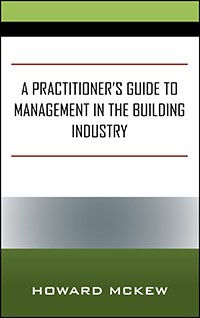Overloaded and Overstuffed
What I mean by that is that we have very little tolerance or patience when it comes to security checks. We know we are not the "bad guys" here. These security people shouldn't be checking us! It is always someone else. How often have you seen people complain because they have to wait in line while security does what security is supposed to do? How often do you see bags left unattended in a building or at an airport? And what about all those travel bags that get squeezed into an airplane overhead compartment? There are times when I think we have more baggage in the overhead bin than in the storage compartments below us. People just don't want to be inconvenienced by waiting at the baggage carrousel to pick up their things; however, carry-on bags are difficult to inspect in a timely manner.
These problems, with entrance into a building or onto an airplane, affect the consulting engineer, project manager, and/or engineering technician more often than the building engineer. We "tend to travel" more as our businesses have grown from local to regional to national to international. At the same time, the facility manager has "bigger problems" because he or she is counting on a lot of support service staff to do their job without exception.
Better Trained is Better Served
Within many building complexes (airport terminals included) are video cameras, X-ray machines, and TV monitors, but who is really looking at them? An argument was made that security people are low paid so they don't necessarily do a good job. There may be some truth to that, but I don't think high priced security people are the answer. What is needed is training and routine emphasis on how important the job is to the safety of everyone as well as their own safety. In the case of building security, a bomb blast doesn't differentiate between the targeted person or company or the innocent security guard. Everyone has a vested interest in maintaining a safe environment.Today we need an emergency action plan that begins with accepting inconveniences in our way of life. People need to accept disruption while someone else does his/her job of providing a safe environment. We need etiquette and to allow enough time and recognize that everyone needs to be considered a suspect. It is just a minor inconvenience compared with the price that could be paid and was paid this past September.
For the building manager, an emergency plan goes far beyond time and etiquette. Here are some things that need to be considered when taking action to reduce risk, damage, and performance in the future:
- Security in and out of a building/campus.
- Immediate-response action plan for emergencies and terrorist acts, including an evacuation plan.
- Mission-critical equipment, routinely exercised, and staff well-trained to respond to operate specific air-handling units, generators, fire pumps, process chillers, and boilers that serve the building or strategic control spaces.
- Mission-critical distribution, action plan for "break points," including flow diagrams with strategic isolation valves/disconnects in emergency power, chilled water or hot water distribution, fire protection distribution, ventilation, and/or steam systems.
- Preparedness plan, including response training to mission-critical requirements and evacuation plans.
- Recovery action plan, to return the building and systems to normal operation including a "lessons-learned" process to capture the events on paper so the future emergency plan process will continue to improve.
Also consider implementing a Plan A, and a fallback Plan B for all emergency routines. Whenever possible, an early warning plan should also be considered. In addition, and really the cornerstone to any security plan and emergency plan, is training, training, training! Everyone must recognize that security breaks, emergencies, and crises occur because there are people in this world who are literally set on destruction at any cost.
So the next time you see a security person, encourage them and compliment them. Don't push or complain. Their job is probably more important than your job. And, as engineers, builders, and facility managers, be prepared to offer your experience when asked to help create an emergency action plan. ES


